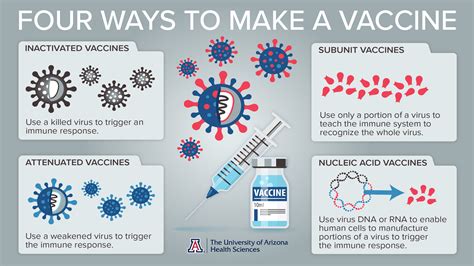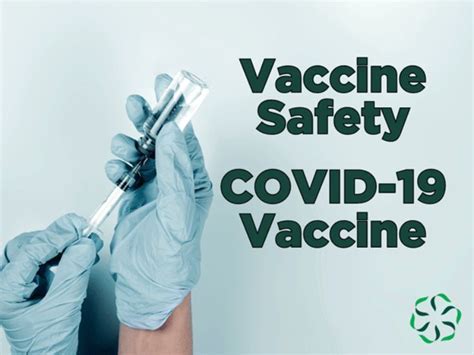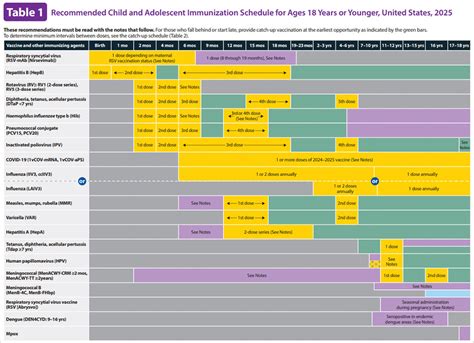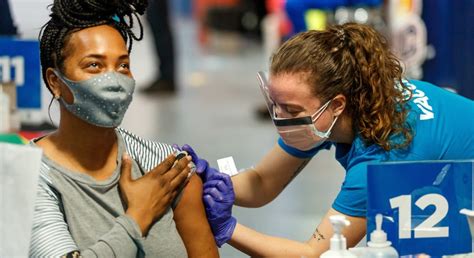Intro
Discover the ultimate Shots And Vaccines Guide, covering immunization schedules, vaccine types, and disease prevention, to help you make informed decisions about vaccinations and stay protected against infectious diseases.
The importance of vaccinations and shots cannot be overstated, as they play a crucial role in protecting individuals and communities from infectious diseases. With the rise of anti-vaccination movements and misinformation, it's essential to educate oneself on the benefits and mechanisms of vaccinations. In this article, we'll delve into the world of shots and vaccines, exploring their history, types, and significance in maintaining public health. Whether you're a concerned parent, a healthcare professional, or simply an individual looking to make informed decisions, this guide aims to provide you with a comprehensive understanding of vaccinations and their role in preventing diseases.
Vaccinations have been a cornerstone of modern medicine for centuries, with the first vaccine developed by Edward Jenner in 1796 to combat smallpox. Since then, numerous vaccines have been created to tackle a wide range of diseases, from measles and mumps to influenza and human papillomavirus (HPV). The impact of vaccinations on public health has been profound, with many diseases that were once prevalent and deadly now virtually eradicated in developed countries. However, the rise of vaccine hesitancy and misinformation has led to a resurgence of preventable diseases, highlighting the need for continued education and awareness.
The science behind vaccinations is rooted in the concept of immunology, where the body's immune system is trained to recognize and respond to specific pathogens. By introducing a small, harmless piece of a virus or bacteria to the body, vaccines stimulate the immune system to produce antibodies and immune cells that can fight off future infections. This process not only protects the individual but also contributes to herd immunity, where a sufficient percentage of the population is immunized, preventing the spread of diseases and protecting vulnerable individuals who may not be able to receive vaccinations.
Understanding Vaccines

Vaccines can be broadly categorized into several types, including inactivated vaccines, live attenuated vaccines, conjugate vaccines, and subunit vaccines. Inactivated vaccines, such as the flu vaccine, contain killed or inactivated pathogens, while live attenuated vaccines, like the MMR vaccine, contain weakened live viruses. Conjugate vaccines, such as the pneumococcal conjugate vaccine, combine a weakened pathogen with a carrier protein to enhance immune response. Subunit vaccines, like the HPV vaccine, use only specific components of a pathogen, such as proteins or sugars, to stimulate an immune response.
Vaccine Development and Approval
The development and approval of vaccines involve a rigorous process, with multiple stages of testing and evaluation. The journey begins with basic research, where scientists identify potential vaccine candidates and conduct initial testing in laboratory settings. This is followed by preclinical trials, where the vaccine is tested in animal models to assess its safety and efficacy. If successful, the vaccine proceeds to clinical trials, which involve human participants and are conducted in three phases. Phase 1 trials focus on safety, Phase 2 trials evaluate efficacy, and Phase 3 trials compare the vaccine to existing treatments or placebos.Vaccine Safety and Side Effects

Vaccine safety is a topic of concern for many individuals, with some expressing worries about potential side effects. While it's true that vaccines, like any medical intervention, can cause adverse reactions, the vast majority of these are mild and temporary. Common side effects include redness, swelling, or pain at the injection site, as well as low-grade fever or fatigue. Serious side effects, such as allergic reactions or neurological disorders, are extremely rare and often occur in individuals with pre-existing conditions.
Addressing Vaccine Misinformation
The spread of misinformation about vaccines has contributed significantly to vaccine hesitancy, with many individuals believing that vaccines are linked to autism, contain toxic ingredients, or are ineffective. However, these claims have been thoroughly debunked by scientific evidence and expert consensus. The CDC, WHO, and other reputable health organizations have consistently emphasized the safety and efficacy of vaccines, with numerous studies demonstrating their benefits in preventing diseases and saving lives.Vaccine Schedule and Recommendations

The vaccine schedule and recommendations vary depending on factors such as age, health status, and geographic location. In general, children are recommended to receive a series of vaccines, including DTaP, MMR, and varicella, to protect against common childhood diseases. Adults may require booster shots, such as Td or Tdap, to maintain immunity, while older adults may benefit from vaccines like pneumococcal conjugate or shingles. Additionally, individuals with certain medical conditions, such as immunodeficiency or chronic diseases, may require specialized vaccine recommendations.
Special Considerations for Vaccinations
Certain groups, such as pregnant women, individuals with weakened immune systems, or those with allergies, may require special consideration when it comes to vaccinations. For example, pregnant women are recommended to receive the flu vaccine and Tdap vaccine to protect themselves and their newborns. Individuals with weakened immune systems, such as those with HIV/AIDS or undergoing chemotherapy, may need to avoid live vaccines or receive additional doses to ensure adequate protection.Vaccines and Public Health

Vaccines play a vital role in maintaining public health, with widespread vaccination contributing to the control and elimination of infectious diseases. Herd immunity, where a sufficient percentage of the population is immunized, helps protect vulnerable individuals who may not be able to receive vaccinations, such as those with compromised immune systems or young children. Additionally, vaccines have been instrumental in reducing the burden of diseases, such as measles and polio, which were once prevalent and deadly.
Global Vaccine Initiatives
Global vaccine initiatives, such as the Global Vaccine Alliance (GAVI) and the World Health Organization's (WHO) Expanded Programme on Immunization (EPI), aim to improve access to vaccines and immunization services worldwide. These initiatives have contributed significantly to the reduction of vaccine-preventable diseases, particularly in low- and middle-income countries. However, challenges persist, including limited access to vaccines, inadequate healthcare infrastructure, and vaccine hesitancy.Vaccine Research and Development

Vaccine research and development are ongoing, with scientists exploring new technologies and approaches to improve vaccine efficacy, safety, and accessibility. Advances in fields like genomics, proteomics, and nanotechnology have enabled the development of novel vaccine platforms, such as mRNA vaccines and viral vector vaccines. Additionally, researchers are investigating ways to improve vaccine delivery, including the use of micro needles, patches, and nasal sprays.
Emerging Trends in Vaccinology
Emerging trends in vaccinology include the development of personalized vaccines, which are tailored to an individual's specific genetic profile or immune response. Other areas of research focus on the use of vaccines to prevent non-infectious diseases, such as cancer and autoimmune disorders. Furthermore, the integration of artificial intelligence and machine learning into vaccine development is expected to accelerate the discovery and optimization of new vaccine candidates.What is the difference between a vaccine and a shot?
+A vaccine is a biological preparation that provides active acquired immunity to a particular infectious disease, while a shot is a general term that refers to any injection, including vaccines, medications, or other substances.
Are vaccines safe for pregnant women?
+Yes, vaccines are generally safe for pregnant women, and the CDC recommends that pregnant women receive the flu vaccine and Tdap vaccine to protect themselves and their newborns.
Can vaccines cause autism?
+No, numerous scientific studies have consistently shown that there is no link between vaccines and autism. The myth that vaccines cause autism originated from a debunked study and has been thoroughly discredited by the scientific community.
As we conclude this comprehensive guide to shots and vaccines, we hope that you now have a deeper understanding of the importance, mechanisms, and benefits of vaccinations. By staying informed and up-to-date on the latest developments in vaccinology, we can work together to protect ourselves, our communities, and future generations from the threat of infectious diseases. We encourage you to share this article with others, engage in respectful discussions, and consult with healthcare professionals to make informed decisions about your health. Together, we can build a healthier, safer, and more resilient world, one vaccine at a time.
